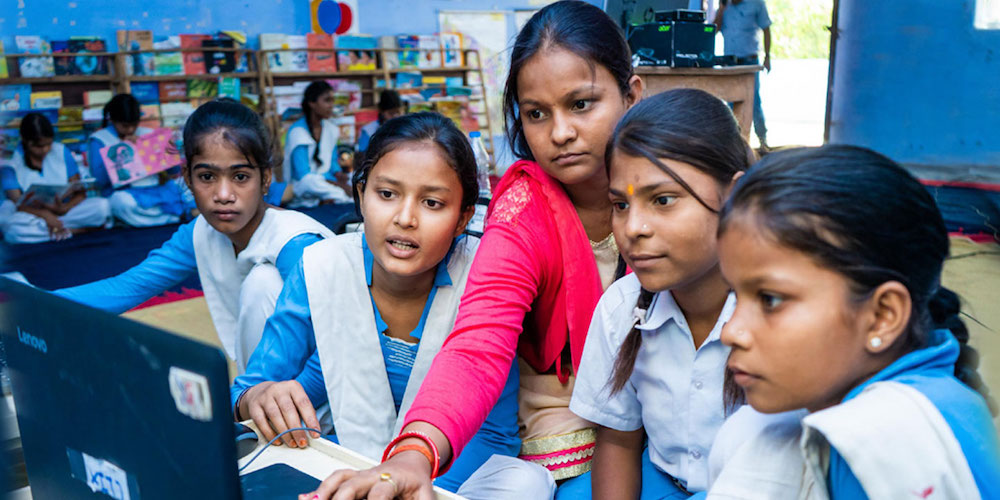Digital Infrastructure for Knowledge Sharing: DIKSHA

Over the years, technology has been evolving and creating innovations in almost all dimensions of life. The impact is visible in the field of education too, particularly through what is said “digital revolution”.
It has been all the more so with the manifold transformations resulting from the Covid-induced digital revolution. In today’s globalising world, the pedagogical pattern has changed and it has become imperative for educators and students to keep abreast with the latest technological changes impacting hybrid culture. In continuation to this, many online platforms and tech trends are emerging and shaping the future of education in India.
To meet the demands of today’s students, teachers need to be more robust in their teaching skills and adapt to the newer patterns of teaching systems. This means using a variety of digital teaching techniques and having a deep conceptual understanding with faster and more accurate procedural fluency to address the needs of each student.
Similarly, the importance of E-books has grown up. The traditional text book culture is an evergreen criterion in students’ lives. However, the prolonged unavailability of physical books in the market due to the Covid-19-led lockdown has led to an uptake of eBooks and audiobooks in India. Audiobooks are one of the evolving education trends in Indians considering they are a lot more convenient, available for use anywhere, and flexible for the listeners.
This trend of using technology to spread education in the country has been facilitated a great deal through the Modi government’s DIKSHA initiative, according to the Union Minister of State for Education, Smt. Annpurna Devi.
DIKSHA is the platform for providing quality e-content for school education in States/UTs and QR coded Energized Textbooks for all grades (one nation, one digital platform).
DIKSHA complies with World Wide Web Consortium (W3C) Web Content Accessibility Guidelines (WCAG) 2.0 level AA. This enables people with visual impairments to access the website using assistive technologies, such as screen readers. Special e-content for the visually and hearing impaired is developed on Digitally Accessible Information System (DAISY) and in sign language on NIOS website/ YouTube.
In all 3,520 textbook based ISL videos have been recorded, out of these 597 textbooks based on ISL videos are uploaded on DIKSHA. A 10,000 word ISL dictionary has been uploaded on DIKSHA and 3,474 audio books chapters have been developed and uploaded on DIKSHA.
NISHTHA 2.0 (Secondary Level) – Online on DIKSHA for secondary/senior secondary level teachers was launched on 29th July, 2021. The training programme covers around 10 Lakh Teacher and School Heads at Secondary Level across all States and UTs. NCERT has developed a package including 13 Online Courses with 12 Generic modules and 56 subject specific modules for NISHTHA 2.0 and as on date 33 States and UTs have initiated this training programme in 10 languages. S Autonomous Organisation under MOE, MOD & MOTA has also adopted the same.
It may be noted that DIKSHA leverages existing highly scalable and flexible digital infrastructures, while keeping teachers at the center. It is built considering the whole teacher’s life cycle – from the time student teachers enroll in Teacher Education Institutes (TEIs) to after they retire as teachers.
NISHTHA 2.0 Online on DIKSHA portal has been developed encompassing twelve generic courses and seven pedagogy courses. Accordingly, 68 Modules have been developed including: Curriculum and Inclusive Education; ICT in Teaching, Learning and Assessment; Personal-Social Qualities for Holistic Development of Learners; Art lntegrated Learning; Understanding Secondary Stage Learners; Health and WellBeing; School Leadership Development; Vocational Education; Gender Issues in Education; Initiatives in School Education; Toy Based Pedagogy; and School Based Assessment. State can contextualize these modules in line with their state specific needs.
NISHTHA 3.0 – Foundational Literacy and Numeracy (FtN) in online mode on the DIKSHA platform for teachers and school heads of pre-primary to class V were launched on 7th September,202l. The NISHTHA 3.0 – FLN envisions covering nearly 25 Lakh Teacher and School Heads at Pre-Primary and Primary Level across all states and UTs. A special package consisting of 12 online modules has been developed by NCERT for this purpose, as per objectives of NIPUN Bharat Mission. So far 33 States/UTs have initiated the programme in 11 Languages and the same has been adopted by 5 Autonomous Organisation under MOE, MOD & MOTA.
NISHTHA 3.0 Online on DIKSHA portal has been developed with the aim to help teachers design experiences for holistic development of each child and comprises of 12 Modules namely: Introduction to FLN Mission; Shifting towards Competency Based Education; Understanding the Learner; Transacting 3 months Play Based School Preparation Module for Grade I Children and Balvatika; Foundational Language and Literacy; Foundational Numeracy; Learning Assessment; Involvement of Parents and Community; Integration of ICT in Teaching, Learning and Assessment; Multilingual Education; Toy Based Pedagogy; and School Leadership.
All the online material under NISHTHA programme is available of the NISHTHA portal of NCERT under the following link: https://itpd.ncert.gov.in/
It is evident that the education landscape will continue to change and evolve in the coming years. With new technologies and trends emerging, there will be new opportunities and challenges for both students and institutions alike.



